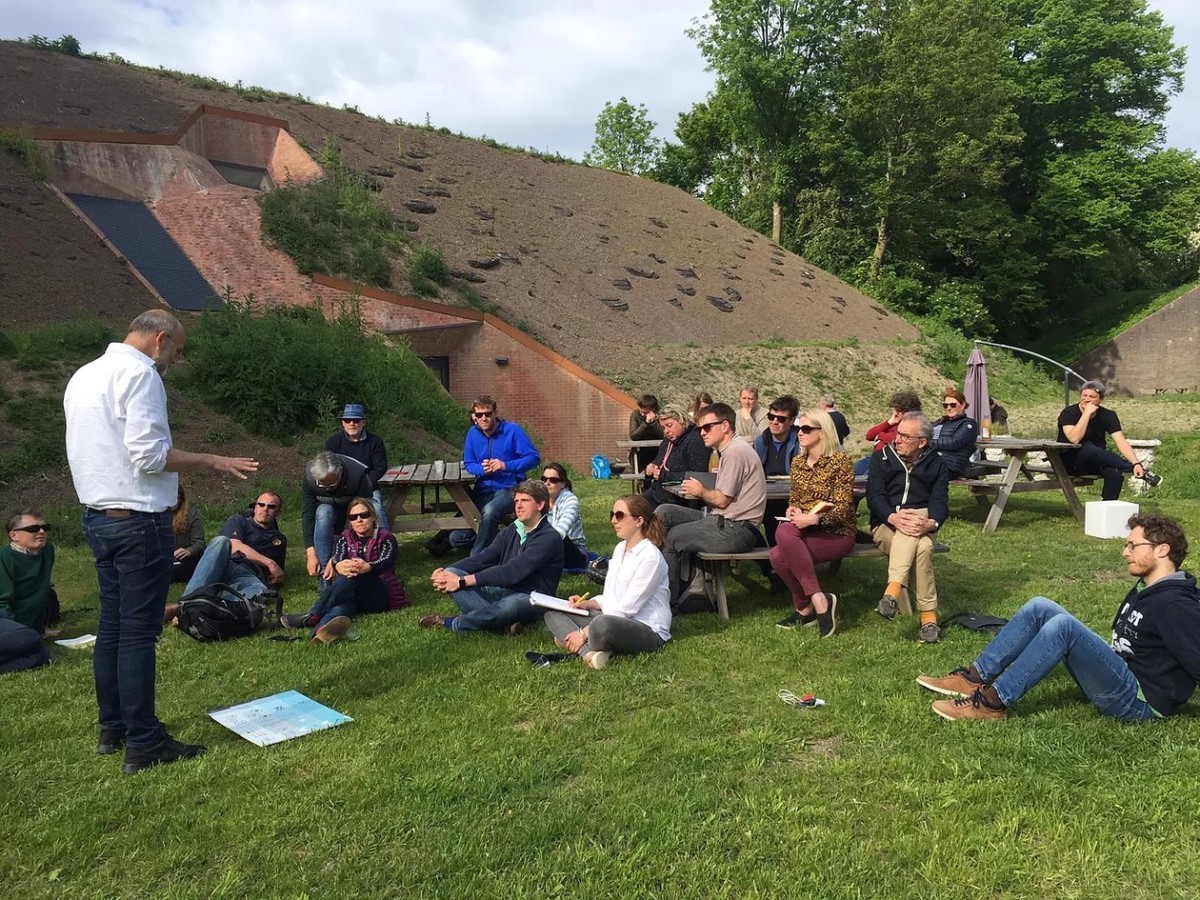Blogs & News
Can innovation bridge the rural/urban divide?
19 June 2019

Can innovation bridge the rural/urban divide asks Forfar-based NFU Scotland Group Secretary Jeremy Parker? Should we be going ‘Dutch’?
In May, I joined several NFUS members among the 15 Rural Leaders and five Rural Youth Project delegates on an “Innovation Safari” in the Netherlands, facilitated by Scottish enterprise and Jane Craigie Marketing.
A packed itinerary had been devised by our guide, Dirk-Jan Kloet, which took us around the districts of Nijmegen, Utrecht, ‘s-Hertogenbosch, Rotterdam and Eindhoven.
The brief of examining innovation to bridge the rural-urban divide kept us away from mainstream Dutch farming and more into the growing “sea of niches” and some proof of concepts. There is an appetite to look at innovation in a fresh light. The floating dairy farm in Rotterdam, which we were privileged to visit just 2 days after the 38 cows boarded, and our meeting with the owner Peter Van Wingerden, were a social media hit within minutes of our photos being posted.
Our many visits involved aquaponics (5 floors up!), poultry, agri-tourism, hospitality, consultants, a university and seven hectares of glasshouses growing specialist cresses. Five key themes emerged through the week.
- Farming and the City: The Netherlands can be viewed as a city of 17 million people with co-ordinated spatial planning across provinces. It is regarded as important that land use around and within the city should contribute to the health and wellbeing of its inhabitants. The concept of Urban Farming brings production closer to consumption and incudes use of redundant industrial buildings, brownfield sites, green corridors and floating farms. I’d never seen “Metropolitan Farmer” on a business card before!
- Social impact & community engagement: Most businesses that we visited incorporated this in some way and proudly regarded it as part of the measure of business success. Incorporation of workers “distant from the labour market” was common (“No Social Waste”). The organic care farm, De Hoge Born, was very interesting - a farm operating in partnership with the local health authority to put 80 people at a time through a 6 week programme as part of their treatment for addictions or mental health issues whilst still operating as a commercial farm for fruit, vegetables and egg production.
- A culture of innovation, collaboration and entrepreneurship: These are the key ingredients behind Dutch export success. The education system feeds quality cross-disciplined people into the sector. It’s not all about technical advancement such as smart farming or Internet of Things. We met an innovative young pig producer with no land who collaborated with woodland owners who needed undergrowth cleared. He sold directly to chefs, who he had prospected on Instagram, only increasing his pig herd size as new customers were found.
- Circular Economy & sustainability: Keeping resources in use for as long as possible, accepting the need to work with the sustainability agenda and changing consumption behaviour. Kipster Farm’s poultry feed uses “residual flows” from large bakeries (i.e. it is not waste!), reducing carbon footprint by 50% and eliminating use of farmland for direct production of animal feed. Cut-and-collect of municipal verge cuttings is also sending grass feedstock to AD plants, both reducing the net public cost of trimming and reducing the land taken out of food production.
- From a food chain to a food network: “Smartchain” could bring closer geographical and social relations between food producers, processors and consumers whilst reducing carbon footprint and increasing food security and bringing greater profitability back to the producer who may also see more reward for soil quality, carbon and water storage. This is subject to a cross-EU research project so watch this space.
Given the current political soap-opera, it was reassuring to hear that, in the Netherlands, Scotland is regarded as distinct from the rest of the UK and is seen as a land of passionate people with an incredible environment.
This bodes well for the marketing of our food and drink but also for us as a destination.
And an important ‘take home’ marketing message came from Roger Engelberts at Imagro in Ottersum: He reminded us all that: “People don’t listen to what you do, but why you do it!”
Registered in Scotland No. SC623598







